Will excess temp damage the induction cooktop
lucypwd
15 years ago
Featured Answer
Sort by:Oldest
Comments (28)
cheri127
15 years agoRelated Professionals
La Verne Kitchen & Bathroom Designers · Newington Kitchen & Bathroom Designers · Ocala Kitchen & Bathroom Designers · Glade Hill Kitchen & Bathroom Remodelers · Biloxi Kitchen & Bathroom Remodelers · Lomita Kitchen & Bathroom Remodelers · York Kitchen & Bathroom Remodelers · Berkeley Heights Cabinets & Cabinetry · Forest Hills Cabinets & Cabinetry · Hammond Cabinets & Cabinetry · Little Chute Cabinets & Cabinetry · Newcastle Cabinets & Cabinetry · Prospect Heights Cabinets & Cabinetry · Warr Acres Cabinets & Cabinetry · Warr Acres Cabinets & Cabinetryklaa2
15 years agolucypwd
15 years agodjh64
15 years agoklaa2
15 years agobruce_allen123
15 years agosusan_in_maine
15 years agoklaa2
15 years agoya_think
15 years agoklaa2
15 years agolucypwd
15 years agobruce_allen123
15 years agodjh64
15 years agoklaa2
15 years agobruce_allen123
15 years agokaseki
15 years agolovemcm
15 years agoweedmeister
15 years agowsscott
15 years agolucypwd
15 years agoscargod
13 years agowsscott
11 years agoCJ123
10 years agoherring_maven
10 years agomountaineergirl
10 years agokaseki
10 years agomountaineergirl
10 years ago
Related Stories
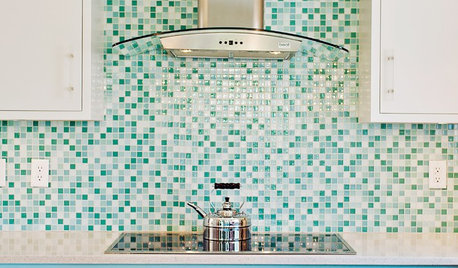
KITCHEN DESIGN9 Popular Stovetop Options — Plus Tips for Choosing the Right One
Pick a stovetop that fits your lifestyle and your kitchen style with this mini guide that covers all the basics
Full Story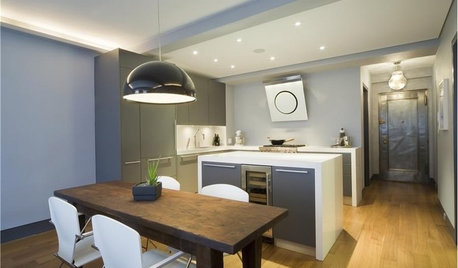
KITCHEN DESIGNHow to Choose the Right Hood Fan for Your Kitchen
Keep your kitchen clean and your home's air fresh by understanding all the options for ventilating via a hood fan
Full Story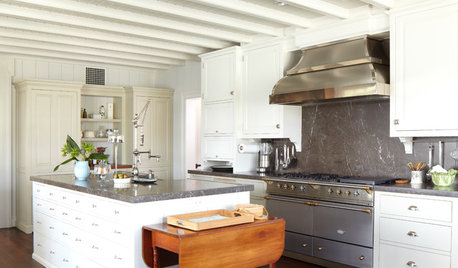
KITCHEN DESIGNHow to Find the Right Range for Your Kitchen
Range style is mostly a matter of personal taste. This full course of possibilities can help you find the right appliance to match yours
Full Story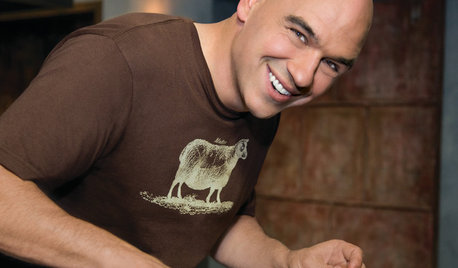
TASTEMAKERSPro Chefs Dish on Kitchens: Michael Symon Shares His Tastes
What does an Iron Chef go for in kitchen layout, appliances and lighting? Find out here
Full Story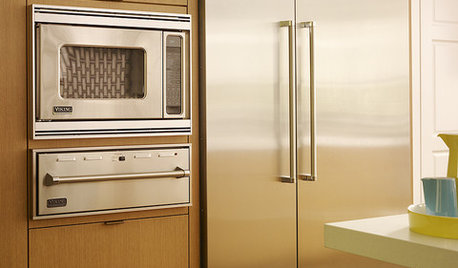
KITCHEN DESIGNA Cook’s 6 Tips for Buying Kitchen Appliances
An avid home chef answers tricky questions about choosing the right oven, stovetop, vent hood and more
Full Story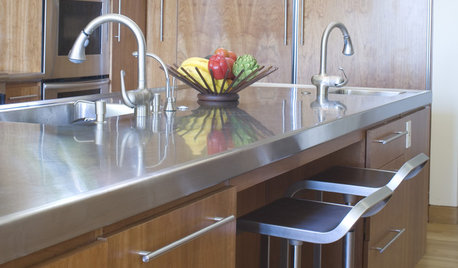
KITCHEN DESIGNDesign an Easy-Clean Kitchen
"You cook and I'll clean" might no longer be a fair trade with these ideas for low-maintenance kitchen countertops, cabinets and floors
Full Story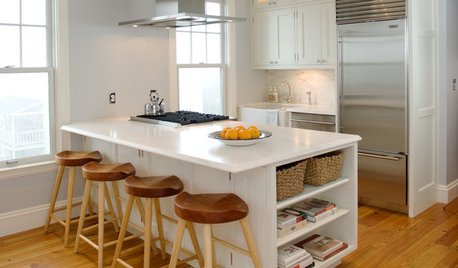
KITCHEN DESIGN20 Kitchen Must-Haves From Houzz Readers
We asked you to tell us your top kitchen amenities. See what popular kitchen features made the list
Full Story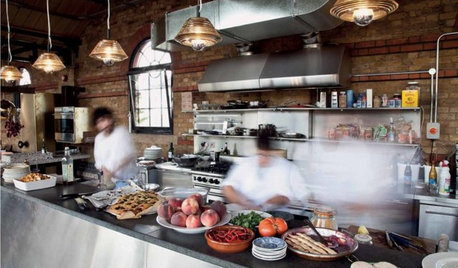
KITCHEN DESIGN16 Practical Ideas to Borrow From Professional Kitchens
Restaurant kitchens are designed to function efficiently and safely. Why not adopt some of their tricks in your own home?
Full Story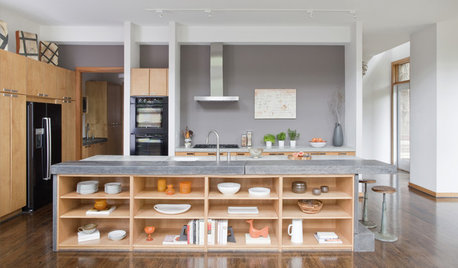
KITCHEN DESIGNHow to Design a Kitchen Island
Size, seating height, all those appliance and storage options ... here's how to clear up the kitchen island confusion
Full Story
KITCHEN ISLANDSWhat to Consider With an Extra-Long Kitchen Island
More prep, seating and storage space? Check. But you’ll need to factor in traffic flow, seams and more when designing a long island
Full Story







weissman